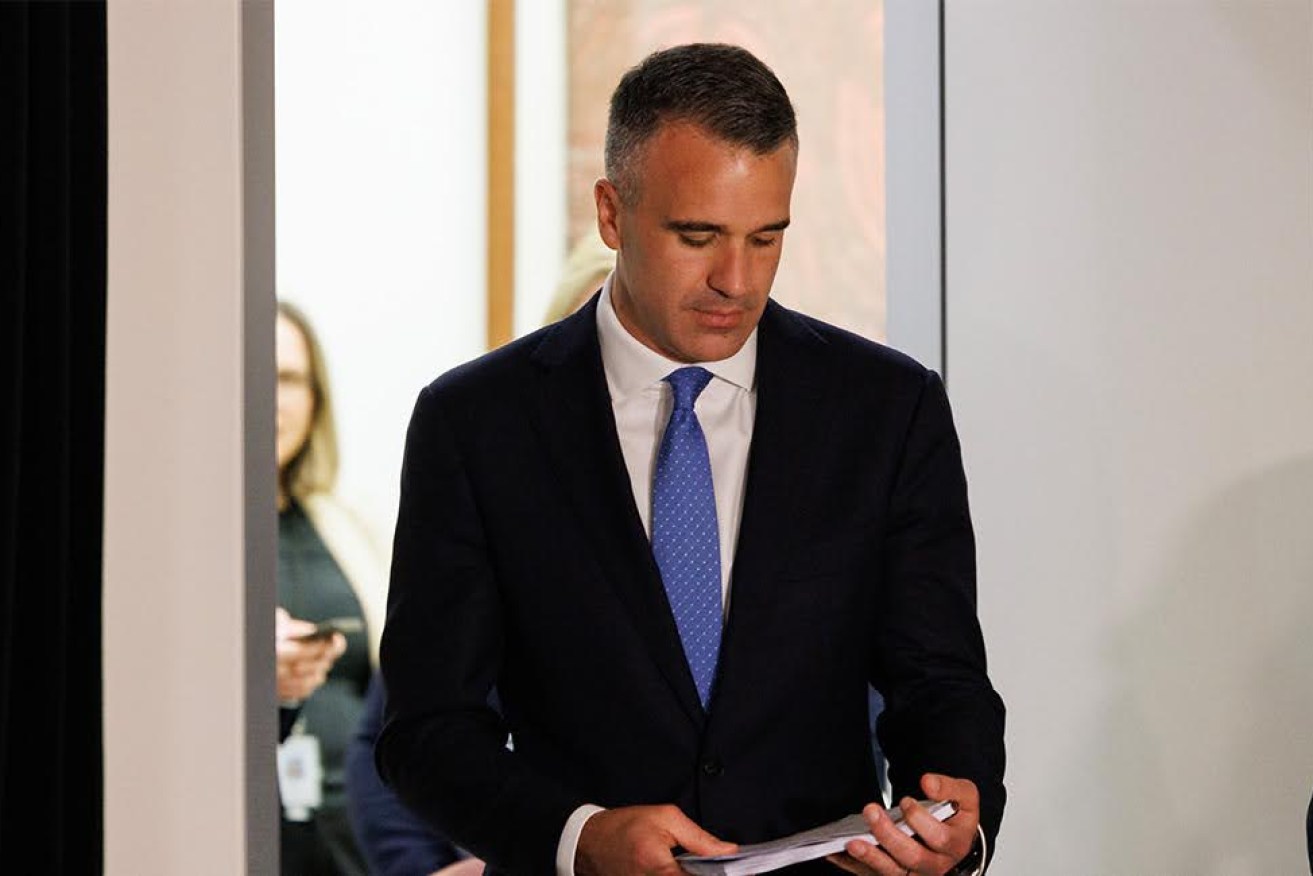Welfare checks on at-risk kids might not finish until March: Premier
Premier Peter Malinauskas says he is worried that children identified as living in “extremely vulnerable” situations might not be checked on by authorities until March while SA Police also focus on door-knocking residents in the flood-hit Riverland.

Premier Peter Malinauskas. Photo: Tony Lewis/InDaily
It comes after Child Protection Minister Katrine Hildyard told parliament yesterday that government workers had so far only checked on 37 per cent – or 185 – of the 500 children identified last month as living “in an extremely vulnerable situation” in a review by former SA Police Commissioner Mal Hyde.
The bulk of the welfare checks, which started midway through last month and span about 400 houses, are being carried out by workers from the Departments for Child Protection and Human Services under the oversight of SA Police.
Police are also coordinating checks by emergency services officers on about 3500 households along the River Murray whose properties are at risk of flooding due to rising water levels.
Malinauskas told reporters this morning that the child welfare checks were in their nature very different to the door-knocking simultaneously occurring in the Riverland.
He said the government aimed to have the child welfare checks completed by the end of March “with an ambition of hopefully doing it sooner than that”.
“We’ve got two efforts being led by SAPOL at the moment. We’ve got the exercise on checking people and their plans and preparedness around the river and then we’ve got the effort around child protection, but they’re so very different indeed,” he said.
“We’re doing hundreds upon hundreds if not thousands of homes in pretty short order for the river effort, why can’t we just replicate that for the child protection effort? And the answer of course is that they’re very different tasks with very different levels of complexity.
“Knocking on a door in a river community and asking someone: ‘Are you prepared to evacuate when the water comes, do you have alternative accommodation?’ That’s relatively straightforward.
“What we’re doing in a child protection context is very, very different indeed.”
The Premier denied that the child protection checks were occurring too slowly, but he said he was worried that some children might not be checked on until March.
“We’re trying to do two things at the same time, we’re trying to do it expeditiously because we do see there being an urgent need out there having been in receipt of the information from the hard review, but, at the same time, we don’t want to leave anything to chance,” he said.
“What we have learned from previous incidents is that when things aren’t done methodically and very carefully then signs for active government intervention can be overlooked.
“We’re working towards having it completed by the end of March with an ambition of hopefully doing it sooner than that.”
Malinauskas last month ordered Police Commissioner Grant Stevens to coordinate the welfare checks following the release of the Hyde review, which considered the extent to which the families of six-year-old Munno Para girl Charlie and seven-year-old Craigmore boy Makai had contact with government departments prior to their deaths.
A SA Police taskforce is currently investigating whether the children were criminally neglected in the lead up to their deaths.
Hyde’s review, conducted with assistance from the Office of Data Analytics, found approximately 500 other children living in about 400 houses “may be in an extremely vulnerable situation”, similar to the circumstances in which Charlie and Makai lived.
Some of the 500 children are siblings and are already known to government departments.
The Public Service Association, which represents child protection workers, has expressed concern that the welfare visits might take workers away from supporting other vulnerable at-risk children and families.
Malinauskas acknowledged in parliament last month that the Departments for Child Protection and Human Services had “existing functions” that they carried out on a daily basis, but the government should “recognise the importance” of conducting the additional welfare checks.
He said that even though some of the 500 children were already known to government departments, there was “no harm in double and triple-checking when we get the opportunity to do so”.




